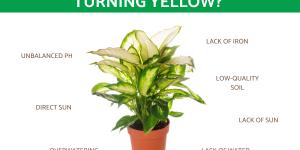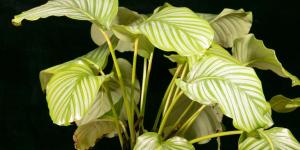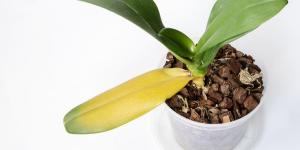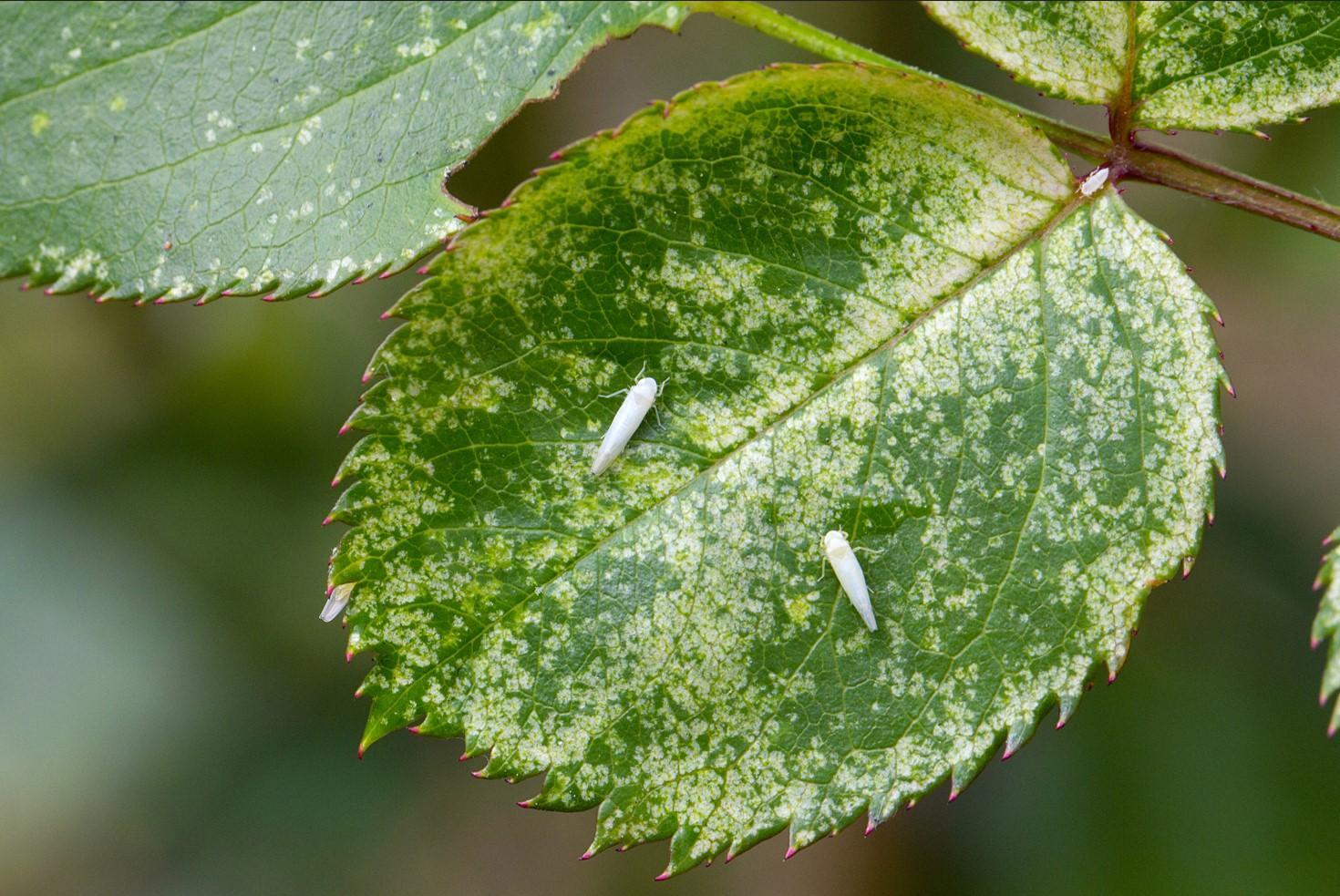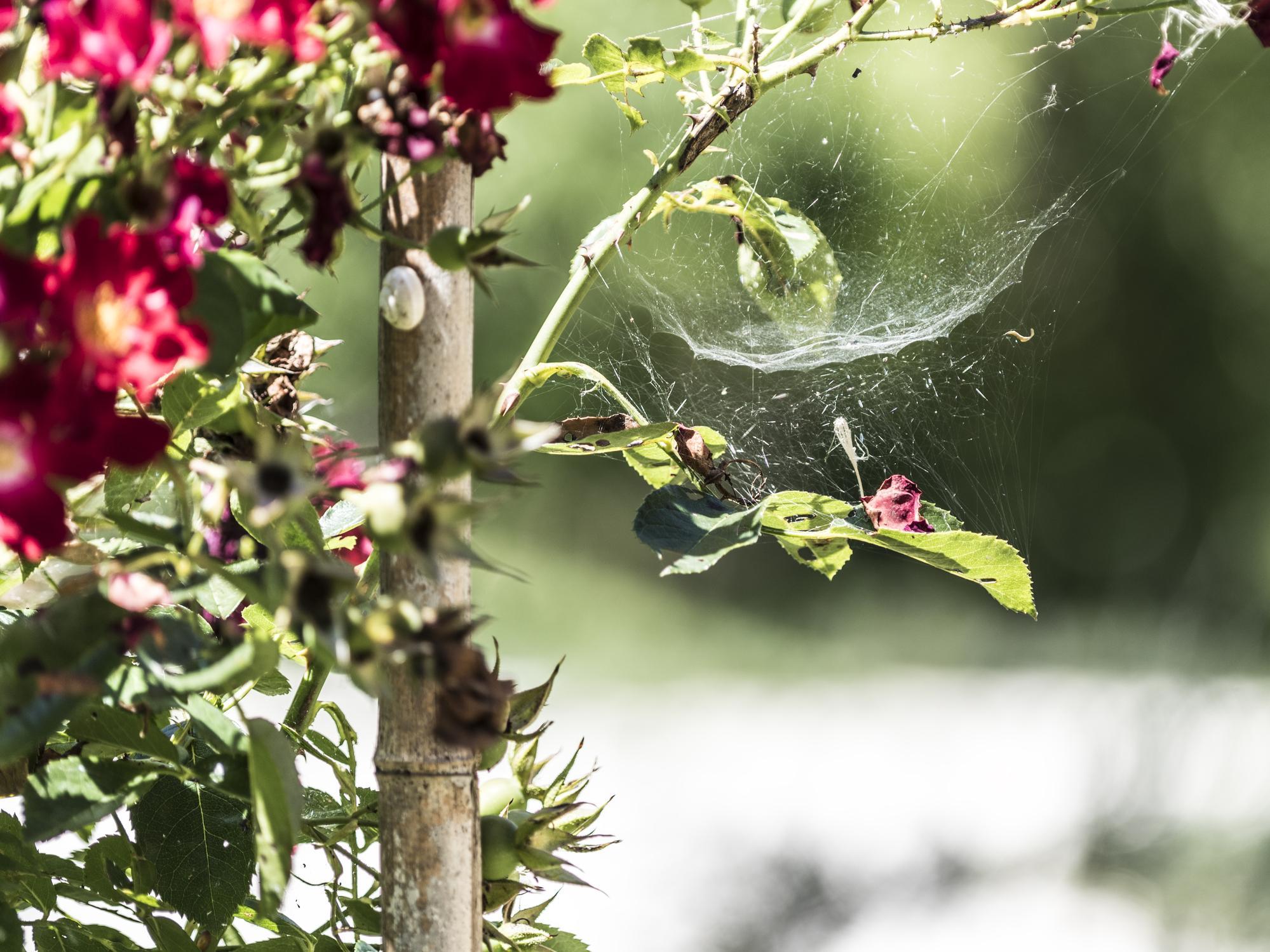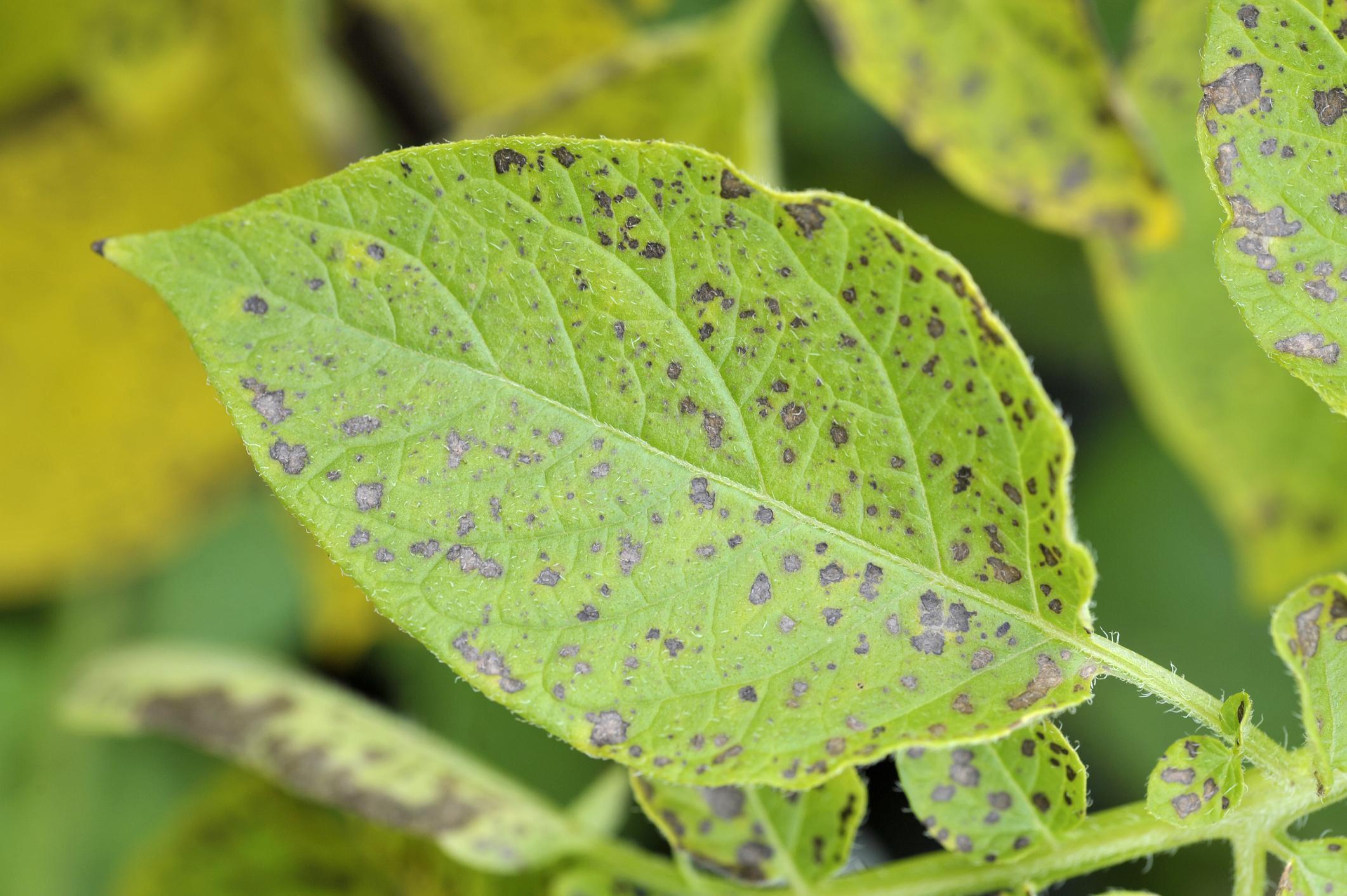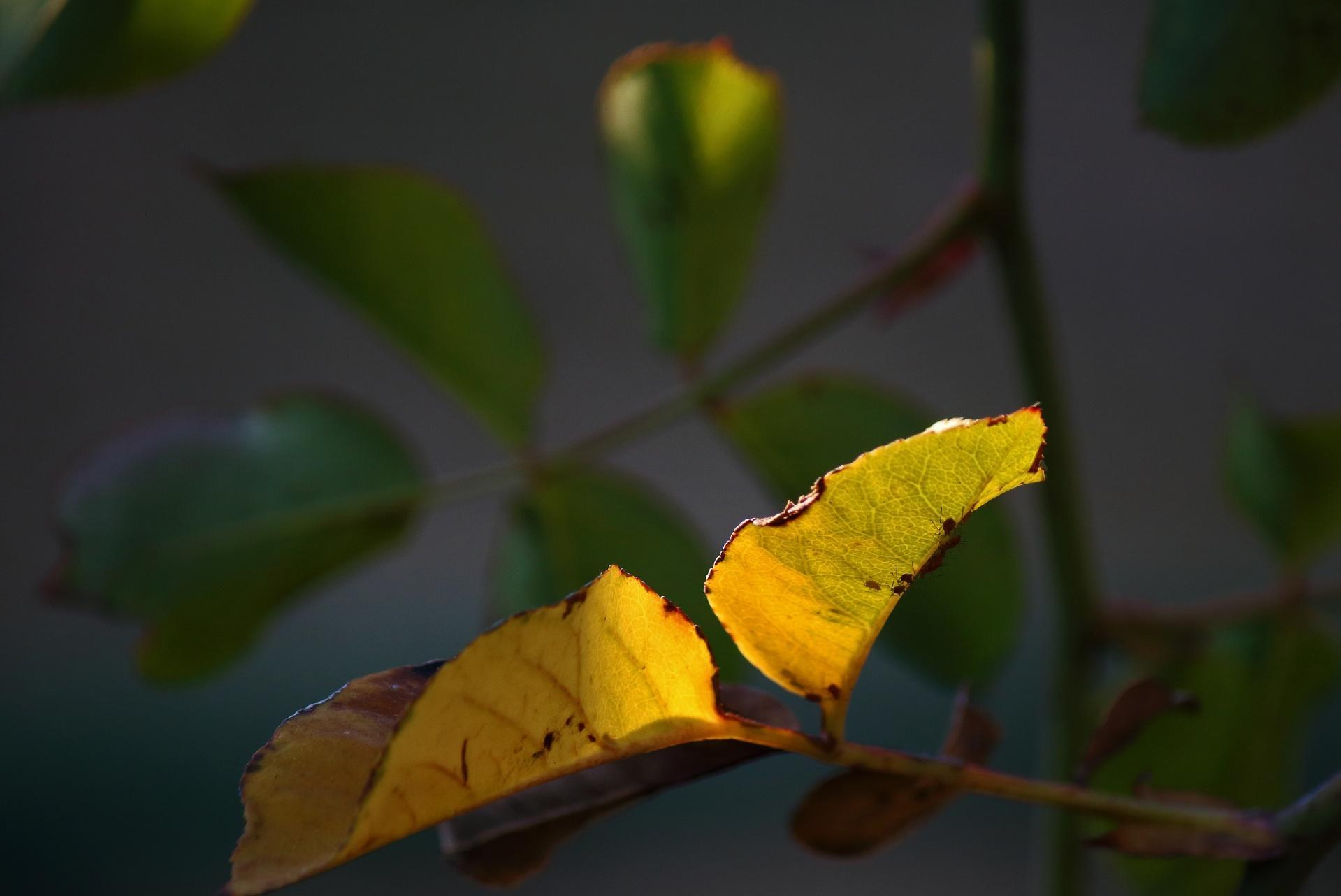Why Are My Rose Leaves Turning Yellow?


Rose bushes are a stunning addition to any garden or landscape, but when their leaves start to turn yellow, it can be a cause for concern. While it's normal for older leaves to yellow and drop off, yellowing of younger leaves can be a sign of a problem.
In this article from thedailyECO, we'll explore the various reasons why rose leaves turn yellow, how to identify the cause, and what steps you can take to address the issue and keep your rose bushes healthy and vibrant.
Leafhoppers
Leafhoppers, also known as Cicadellidae, are insects belonging to the same family as crickets and grasshoppers. These small insects are typically about 3 millimeters in size and can be found on the underside of leaves where they feed on sap by piercing and sucking it out.
The sap contains chlorophyll, which is essential for the plant's photosynthesis process. As a result of the feeding, the leaves may develop small yellow spots which can gradually progress, causing the entire leaf to turn yellow and fall off. Leafhoppers are a common pest of rose bushes and are often responsible for yellowing leaves in both indoor and outdoor mini rose bushes, although they are more common outdoors.

Red spider
Spider mites, scientifically named Tetranychus urticae, are tiny mites that are about 1 millimeter long and are often mistaken for spiders due to the fine webbing they produce. These mites attach themselves to the undersides of leaves, where they feed on the plant sap.
As a result of their feeding, rose bushes may develop yellow leaves with brown or black spots. Spider mites are notorious for their rapid reproduction, and large populations can quickly form on a single leaf. They are among the most common garden pests, particularly when temperatures rise and the environment becomes drier. Despite their small size, spider mites can cause significant damage to plants if not addressed promptly.

Rust
Rust is a fungal disease that can cause significant damage to rose bushes. It is characterized by bright yellow to orange balls that appear on the undersides of the leaves. Rust is caused by the Phragmidium mucronatum species of fungi, which infects the leaves and can also attack the buds. The fungal infection results in the formation of these characteristic balls.
If left unchecked, the leaves will gradually lose color and become stained. Rust is a serious problem for rose bushes and requires prompt treatment to prevent further damage.

Alkaline soil and lack of iron
Alkaline soils can hinder the absorption of iron, an essential nutrient that plays a crucial role in the production of chlorophyll necessary for photosynthesis. When there is a deficiency of iron, the leaves of the plant can turn yellow, a condition known as chlorosis.
This lack of nutrient absorption can also result in reduced leaf or plant mass, providing a clue to the underlying cause of yellowing leaves. While mineral-free soils are rare, iron uptake can be limited in highly alkaline soils, which can contribute to yellowing leaves in plants.

How to care a rose bush with yellow leaves?
In order to take care of a rose bush with yellow leaves, it is important to first identify the underlying cause of the issue. Observe the plant and look for signs of pests, diseases, or nutrient deficiencies. Once the cause has been determined, appropriate measures can be taken to effectively treat the plant. Here are some general guidelines to follow:
- Remove damaged leaves: if only a few leaves are affected, remove them to prevent the problem from spreading.
- Move the plant: if the rose bush is in a pot, move it to a better location that meets its requirements. For example, place it in the sun if it has rust, or in a more humid location if it has spider mites.
- Use mulch: apply mulch around the plant to keep the soil moist and prevent spider mites from settling. Mulch can be made from dry leaves, broken wood logs, gravel, or straw.
- Use potassium soap: potassium soap is an eco-friendly pesticide that can be used to treat both leafhoppers and spider mites.
- Use chemical products: if the problem persists, use quick-acting chemical products as a last resort. For rust, use a fungicide made from myclobutanil or peconazole, and for spider mites, use Acadrex or Folimat.
- Treat alkaline soil: use soil mixtures to treat iron chlorosis caused by alkaline soil. Special fertilizer mixtures for rose bushes can also be used to ensure good nutrient content in the soil.
Remember, prevention is always better than cure. Keep your rose bushes healthy by providing them with proper care, including adequate sunlight, water, and nutrients. By understanding the main causes of yellow leaves in rose bushes and taking appropriate measures, it is possible to maintain healthy and vibrant plants.
Perhaps you would like to check out another article we've written, featuring a selection of stunning flowers that resemble roses.
If you want to read similar articles to Why Are My Rose Leaves Turning Yellow?, we recommend you visit our Plant care and cultivation category.
- Buczaki, S. (1996) Rosales. Madrid: Hemann Blume Editions.
- Ros, S. (2006) The gardening and landscaping company: maintenance and conservation of green spaces. Madrid: Mundi-Press Editions.

